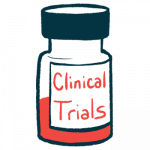Caring for a loved one with Alzheimer’s disease (AD) can be overwhelming. To help ease the caregiver burden — and ultimately benefit patients — a Florida-based company called VirtuALZ is offering a new virtual support program. Crafted specifically to support caregivers of patients who have Alzheimer’s and related dementias, VirtuALZ’s program uses calls, texts, and…
About Alzheimer’s Disease
Walking into a room and forgetting why you went into the room is normal. Walking into a room and forgetting what room you are in is not normal. Alzheimer’s disease is the most common form of dementia and affects one in ten people over the age of 65. Unfortunately, the exact cause of Alzheimer’s disease is not fully understood however leading scientific experts in the field attribute the illness to the irreversible and progressive generalized degeneration of the brain. Alzheimer’s disease goes well beyond the forgetfulness that may accompany aging, and typically first signs include difficulty remembering current information or performing new tasks. Ongoing hallmark symptoms include impaired memory function, difficulty performing everyday tasks, and neurobehavioral abnormalities. Currently, there is no known cure for Alzheimer’s disease, and multi-disciplinary treatment focuses on symptom management and limiting progression.
Conditions
Alzheimer’s News
Brain Health Academy Will Offer Wellness Guidance to Professionals
UsAgainstAlzheimer’s is preparing to launch free online courses – The Brain Health Academy – teaching health and wellness professionals how to help people reduce the risk of Alzheimer’s and dementia. Developed in partnership with the American Heart Association, The American College of Lifestyle Medicine, and the Centers for Disease Control and Prevention, the six-part course…
Tau-targeting Treatment Slows Cognitive, Functional Declines: Trial
Alzheimer’s patients given the experimental tau-targeting therapy HMTM in a Phase 3 clinical trial experienced a substantially slower decline in cognitive and functional measures than would be expected based on published research, according to new findings announced by HMTM’s developer TauRx Pharmaceuticals. TauRx expects these results will support applications to gain regulatory approvals of HMTM…
New Community-driven Model Aims to Improve Alzheimer’s Screening
An innovative new project in Toronto will combine optometry and community-based cognitive testing to improve Alzheimer’s screening and enable the early detection of the progressive neurodegenerative disorder. The project — launching in Ontario, Canada — will be led by the medical imaging company RetiSpec and the community-based medical center Toronto Memory Program. These collaborators are…
Activities Mark Alzheimer’s and Brain Awareness Month Across June
The start of summer holds the promise of beach trips, barbecues, and vacations, but for people with Alzheimer’s disease and their caregivers, family, and friends, June also means Alzheimer’s and Brain Awareness Month. Monthlong initiatives aim to honor the more than 55 million people living with dementia worldwide, according to Alzheimer’s Disease International. As it does…
C2N Develops Blood Test to Measure Tau Forms in Alzheimer’s Research
C2N Diagnostics has developed a new assay that precisely measures blood levels of four forms of tau, a protein involved in the brain changes observed in Alzheimer’s disease. Called the plasma tau multianalyte assay (p-tau MAA), the test is intended to be used for research purposes only and does not have current approval for use…
For Dementia Patients Who May Forget to Stay Hydrated — ‘Jelly Drops’
When Lewis Hornby’s grandmother was rushed to the hospital in 2018, his family feared the worst. Pat Dickinson suffered from dementia, but in this instance it turned out that she was simply dehydrated. Once she got some fluids in her, she bounced back. But what happened to his grandmother gave Hornby an idea about how…
Einstein Study Lands $32M NIH Grant to Study Aging Brain
The Einstein Aging Study has received a $32 million grant from the National Institutes of Health (NIH) to delve into the many risk factors that may determine cognitive decline and disease progression in people with Alzheimer’s. The study, ongoing at the Albert Einstein College of Medicine since 1980, focuses on the brain and how it…
Dosing Begins for Next Phase of Trial for Investigational Therapy AL001
Alzamend Neuro has dosed the first patient in the multiple ascending dose portion of its Phase 2a clinical trial of AL001, an investigational oral therapy for dementia related to Alzheimer’s disease. This multiple ascending dose (MAD) part follows positive results from a Phase 1 trial. Topline data from the Phase 2a trial is expected in…
Fujirebio’s Diagnostic Test for Beta-amyloid Plaques Given FDA OK
The U.S. Food and Drug Administration (FDA) has granted marketing permission to a new test that checks for amyloid plaques in people being checked for Alzheimer’s disease. The Lumipulse G β [beta]-Amyloid Ratio (1-42/1-40) test, which will be sold by Fujirebio Diagnostics, is now approved for adults ages 55 and up who are being evaluated…
Eisai Completes Rolling Submission to FDA for Lecanemab Approval
Eisai has completed a rolling submission to the U.S. Food and Drug Administration (FDA) to seek approval for lecanemab (BAN2401), an investigational antibody for the treatment of early Alzheimer’s disease accompanied by beta-amyloid deposits in the brain. The request — made in the form of a biologics license application (BLA) — if accepted by the…
Treatment Lowers Toxic Amyloid-beta Levels in Mouse Brain Cells
An investigational gamma-secretase modulator designed for the treatment of Alzheimer’s disease led to an efficient and long-lasting reduction of toxic amyloid-beta 42 peptide in cell cultures and mouse brain cells, according to data from a recent study. In mice, the compound, called AC-0027875, was also able to penetrate the brain in high concentrations, which is…













